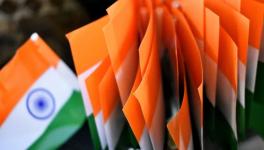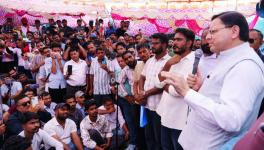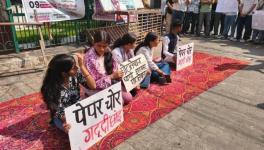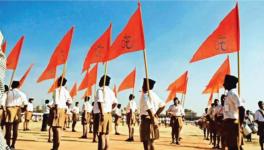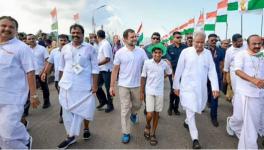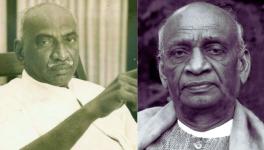What 'Praja Palana' Mean for Women of Telangana
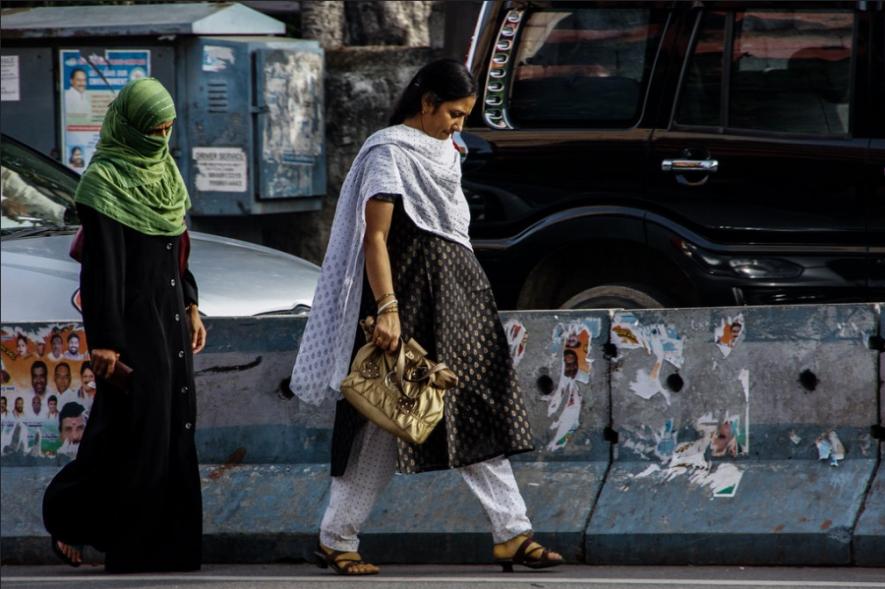
Representational image. | image courtesy: Wikimedia
The recently concluded third state Assembly election in Telangana marked a significant turning point, with the Indian National Congress (INC) securing victory and altering the state's political landscape. This election held profound importance for Congress leaders in Telangana and set the stage for the upcoming 2024 Lok Sabha election.
On the other hand, under Kalvakuntla Chandrashekar Rao's (KCR) leadership, the Bharatha Rastra Samithi (BRS) aimed for a third consecutive term in Telangana. KCR's vision extended beyond state boundaries, aspiring for the party's entry into national politics through the advocacy of a proposed third front.
KCR's ambition to establish a credible alternative through the proposed third front was rooted in the belief that the Congress and BJP regimes had failed to adequately address national welfare and development concerns. However, unfavourable election results, attributed to anti-incumbency sentiments, familial governance concerns, and rising unemployment, hindered his aspirations for union politics.
During the election campaigns, the Telangana Congress Party highlighted the Praja Palana (People's governance) approach as a pivotal mandate in their manifesto, promising a governance model centred around the populace—a promise not fulfilled during KCR's tenure. As the new government takes charge, it has initiated the implementation of election pledges, such as providing free bus services for female passengers through the Telangana State Road Transportation Corporation (TSRTC). The Chief Minister, Deputy Chief Minister, and cabinet ministers recently launched application forms for the six guarantees and other welfare schemes, coupled with grievance redressal systems. This move is positioned under the umbrella of Praja Palana, framing governance as accessible and responsive to citizens' needs.
While the emphasis on people-centric governance is commendable, examining the reality of the state's representational politics is crucial, which falls short of fairly representing more than half of the state's population and electorate—women.
In Telangana's 2023 state Assembly election, female voters outnumbered male voters, significantly contributing to the final outcome. Historically, the women of Telangana played pivotal roles in social movements from the early 1900s to the state's formation in 2014. Figures like Chityala Ailamma in the Telangana People's Struggle and Belli Lalithaakka during the separate statehood movement left remarkable footprints with strong anti-feudal and anti-capitalist stances. Despite their significant contributions to struggles for Telangana's betterment, the political leadership consistently failed to provide fair representation in the socio-political landscape.
Particularly after the formation of the separate state in 2014, female leadership was scarcely visible in the state Assembly. Throughout the nine and a half years of KCR-led BRS governance, there were only a few women leaders in nominal positions. It wasn't until 2019 that KCR appointed two female ministers to his cabinet during his second term.
Despite the current Congress government criticising the BRS government's shortcomings and promoting a discourse of people-centred governance, it seems to continue the legacy of depriving women politicians of cabinet positions. Out of 119 MLA seats, only 10 female candidates were elected to the state Assembly, representing 8.4% of the total.
Among the 64 seats won by the Congress, there were six female MLAs, making up 9.4% of women in the ruling party. While the Congress elected two Ministers from the five MLAs, in the extended cabinet, it's unlikely the other two young MLAs will be prioritised over senior leaders.
The gender dynamics, compounded by caste disparities, present an ironic situation. Of the ten female MLAs, five are from the dominant Reddy caste, which has a stronghold in Telangana's political landscape. The rest comprise two from ST communities, two from the Dalit community, and one from the BC community. Notably, among these four, two ST and one BC MLA have extensive political experience, while the two MLAs are the youngest. The ST and SC MLAs were elected from reserved constituencies.
It's essential to note that while SC-ST-Muslim-BC communities represent at least 90% of the state population, their representation in the Assembly is inadequate. Particularly, the Muslim community representation in the Assembly is non-existent, despite the Muslim population constituting over 12% of the state population, as per the 2011 census, let alone Muslim women. Presently, there are no elected female Muslim members from either the ruling or Opposition parties. Although the AIMIM has 7 Muslim MLAs, there's no female Muslim MLA from any party.
Amidst this backdrop, it's puzzling how the ruling party can claim to follow Praja Palana when women, even though they make up the majority of voters, still lack political space for governance and leadership. The big question is whether the Congress, despite creating a buzz about the discourse on people-centered governance (Praja Palana), will take real steps. Will they ensure fair opportunities for women, especially from SC-ST-Muslim-BC communities, in nominated chief positions for the state-run corporations, in the Member of Legislative Council (MLC), and even in the upcoming Lok Sabha Elections? These questions are left hanging, urging the Congress to show through actions how committed they are to a genuinely inclusive and democratic Telangana.
Ashok Danavath is a postgraduate scholar from Telangana, India, and was formerly a Government of India National Overseas Scholarship Fellow at the International Institute of Social Studies, The Hague. He currently works as a Senior Researcher for the National Campaign on Dalit Human Rights (NCDHR).
Get the latest reports & analysis with people's perspective on Protests, movements & deep analytical videos, discussions of the current affairs in your Telegram app. Subscribe to NewsClick's Telegram channel & get Real-Time updates on stories, as they get published on our website.













